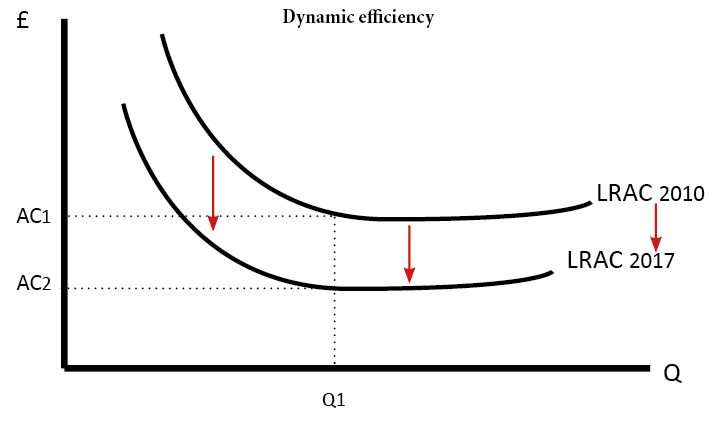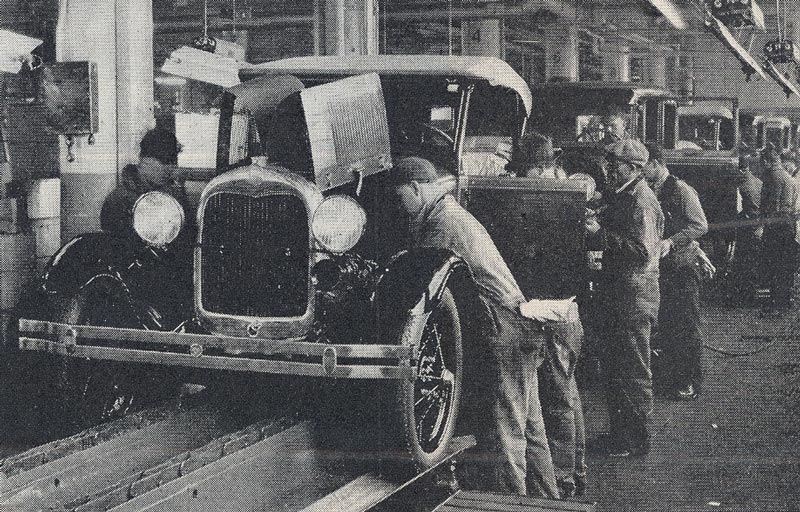Definition of Dynamic Efficiency
Dynamic efficiency is concerned with the productive efficiency of a firm over a period of time.
A firm which is dynamically efficient will be reducing its cost curves by implementing new production processes. Dynamic efficiency will enable a reduction in both SRAC and LRAC.
Diagram showing dynamic efficiency
Therefore dynamic efficiency is concerned with the optimal rate of innovation and investment to improve production processes which help to reduce the long-run average cost curves.
For example, investment in new machines and technology may enable an increase in labour productivity.
Dynamic efficiency may also involve implementing better working practices and better management of human capital. For example, better relationships with unions that help to introduce new working practices.
Dynamic efficiency involves a trade-off. To invest in better technology may involve higher costs in the short run. But, without this investment and innovation, the firm may be unable to improve over time.
Factors that affect dynamic efficiency
- Investment – investment in new technology and improved capital can enable lower costs in future
- State of technology. The rapid development of technology can enable firms to produce more for lower costs.
- The motivation of workers and managers – do managers have incentives to take risks and innovate or is the structure of the firm set up to encourage stagnant development?
- Access to finance. A firm without access to finance will struggle to invest in new capital which will enable lower costs.
Examples of Dynamic efficiency
In 1923, Henry Ford’s car factory was one of the most efficient firms in the world – making the most effective use of assembly lines. Throughout the 1920s and 30s, Ford was the most efficient car-producer. However, by the 1950s and 60s, it was starting to lose its competitive advantage as Japanese car firms innovated and improved quality of car-building.
At the start of the internet, Yahoo was the dominant search engine, but it quickly lost its position to a new entrant – Google. In an industry like the internet, a firm cannot stand still but has to be continually innovating and improving the quality of its product and lowering costs.
Related Concepts
- Static efficiency is concerned with efficiency at a particular point in time.
- Productive efficiency – produce at the lowest point on SRAC
- Economies of Scale – Produce at the lowest point on LRAC
- Types of efficiency – different types including allocative and productive efficiency.


